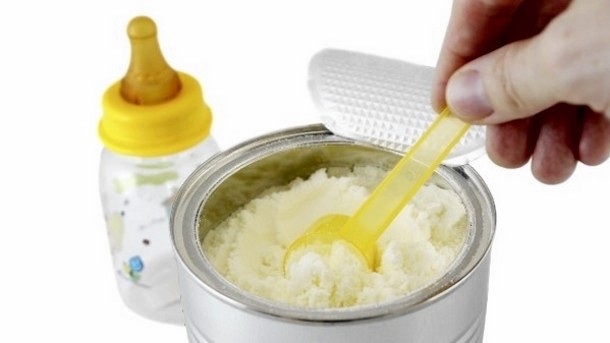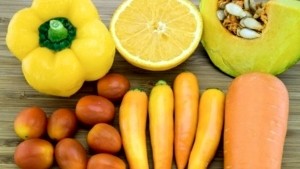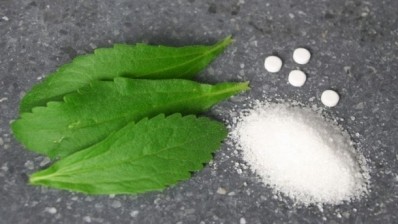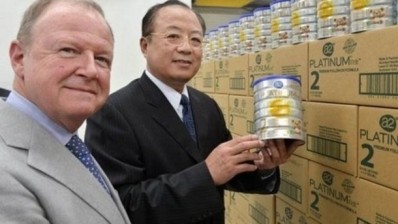China direct
Thousands of cans of Chinese fake formula still unaccounted for

Officials in Shanghai believe that a total of 17,000 tins of mislabelled powder had been distributed across several provinces claiming to be Similac, which is manufactured by Abbott Laboratories, and Beingmate, one of China’s biggest names in infant nutrition.
The China Food and Drug Administration has ordered a full investigation into the scandal and deployed inspectors in Shanghai to trace the counterfeit products.
According to officials, the fake products had been sold in Henan, Anhui, Jiangsu and Hubei provinces, where authorities are working to track down further remaining cans.
Though the fake powder was found to be within Chinese food safety limits, the affair will still come as a blow to consumers, many of whom are still mistrustful of infant nutrition products after the widely reported melamine scandal in 2008, which saw the deaths of six infants and hundreds of thousands more sickened after consuming formula tainted by the chemical.
The CFDA has asked the public to be cautious when buying milk powder online and ordered retailers to keep a full record of the source of their products.
The gang involved in the latest scandal made nearly 2m yuan (US$310,000) from the scam, according to officials, who accused the suspects of buying cheap baby formula and adult milk powder before repackaging them in branded containers.
More stories from China…
Carotenoids shown to increase bone mineral density in high concentrations
The consumption of serum carotenoids in high concentrations has been found to be linked to higher bone mineral density in middle-aged and elderly Chinese adults, according to a large cross-sectional study.
The research, which was published in the journal Osteoporos International, recognised that the correlation was especially marked among women subjects.
The researchers, from Guangzhou, assessed 1,898 women and 933 men aged 50-75 years using high-performance liquid chromatography to analyse individual serum carotenoids, while dual-energy X-ray absorptiometry was employed to determine bone mineral densities at whole body, lumbar spine, total hip and femur regions.
They found not only that high-level of alpha-carotene, lycopene and beta-cryptoxanthin were associated with increased bone mineral density at most skeletal sites in women, but also that higher alpha-carotene levels were significantly associated with greater bone mineral density in total hip and its sub-regions.
When comparing the lowest and highest quartile of alpha-carotene in women, the percentage differences of mean density values were 2.3% for both total hip and neck, and 2.7% and 2.4% for trochanter and intertrochanter respectively.
In men, by contrast, only high-serum alpha-carotene was significantly associated with increased bone mineral density at all sites except for lumbar spine.
When comparing the lowest quartile in men, the mean densities in the highest quartile of alpha-carotene was 4% higher, though serum lutein and zeaxanthin showed no significant association with bone mineral density in either sex.
Women are at a greater risk of losing bone mass as they have smaller bones compared to men, especially when they reach menopause, according to CheeYen Lau, a nutritionist.
“Based on the results, it is suggested that the increased intake of mixed carotenoid with high-content of alpha-carotene benefits both women and men, especially women who are more prone to bone mass loss,” said Lau, who is employed by ExcelVite, a Malaysian producer of tocotrienols and natural mixed carotenoids.
Source
Osteoporos Int: 27(4):1593-601. doi: 10.1007/s00198-015-3425-2
“Greater serum carotenoid concentration associated with higher bone mineral density in Chinese adults.”
Zhang ZQ et.al.
Retailers mull effect of China’s new online shopping tax
China’s burgeoning e-commerce portals are not expecting international vendors increase their prices immediately for products such as food and baby products after a new government policy raised taxes on 1,100 imported items last weekend.
According to media reports, retails giants such as Alibaba said they believed that overseas brands and retailers active on their sites would absorb the higher prices before gradually passing these on to consumers.
Some of these companies have expressed concern at the lack of detail in the new regulations, especially regarding tougher requirements to determine which goods can be imported through cross-border e-commerce warehouses in pilot free-trade zones in 12 cities that were given preferential tax and customs treatment.
E-commerce is witnessing something of a boom in China, where an expanding middle-class that is increasingly unsatisfied with the quality of local products has become steadily more willing to pay higher prices for products from countries where food is deemed safer, such as Australia.
China’s finance ministry unveiled a new 11.9% value added tax last month which analysts said will increase the tax burden on low-end products while lowering the tax rate for some premium items such as cosmetics.
The move was taken by authorities in a bid to level the playing field between offline and online sellers, with the latter heretofore enjoying lower tax rates on imported goods.



















